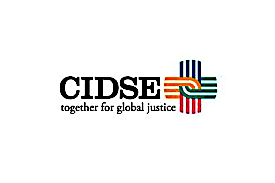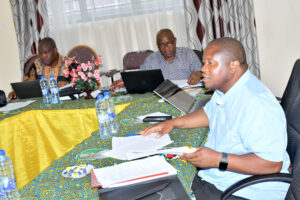CIDSE: International Catholic Organizations Call for Debt Cancellation and Financial Support to Poorest Countries

Sr. Jecinter Antoinette Okoth, FSSA
An alliance of Catholic development agencies working for global justice under the umbrella International Cooperation for Development and Solidarity (CIDSE) has called for debt cancellation and financial support to poorest countries following Covid-19 pandemic that has hit hard the world’s economy.
In a statement published by CIDSE whose Secretariat is based in Brussels and works in nearly 120 countries worldwide, the leadership has noted that the quickest way to support livelihoods is to cancel debts.
“The immediate priority for all countries is to save lives and support livelihoods, and debt cancellation is the quickest way to finance this,” the statement dated Tuesday, February 23, reads in part and adds, “In the long-term, permanent debt restructuring and new financing is needed to rebuild societies and economies that put the needs of the poorest and most vulnerable people first.”
“We need to act in global solidarity as one human family, moving from a myopic focus of what is politically, financially and technically feasible, to concentrate on what is necessary to save lives and protect our planet for current and future generations,” the statement reads.
According to CIDSE, the statement has been released ahead of the G20 Finance Ministers and Central bank governors meeting slated for Friday 26, so that they may “respond to the urgency of the current crisis with global cooperation, solidarity and leadership that is needed.
The G20 meeting aims to discuss the need to “foster a rapid and transformative recovery from the Covid-19 crisis and bring the global economy back to the path of growth.”
G20 is the international forum that brings together governments of 20 world’s major economies who’s “members account for more than 80% of world GDP (Gross Domestic Product), 75% of global trade and 60% of the population of the planet.”
The CIDSE officials want the G20 Finance Ministers and Central bank governors “to support a new and significant issuance of $3 trillion Special Drawing Rights (SDRs) by the International Monetary Fund (IMF) that will enable all countries to respond to the current Covid crisis and support a just, sustainable recovery.”
They also asks for extension of the “Debt moratorium through the DSSI (Debt Service Suspension Initiative) for longer (at least 4 years) and to more countries, including those climate vulnerable countries who were already struggling to respond to added pressures of climate change.”
In their statement the CIDSE leadership has requested G20 Finance Ministers and Central bank governors “to ensure that private creditors who are currently continuing to take debt payments from countries who are struggling to respond to the needs of their citizens, are compelled to participate in all debt restructuring and debt relief.”
Additionally, they want the forthcoming meeting “to support a permanent debt workout mechanism to deliver timely, comprehensive, and fair debt restructuring to all countries with a high and unsustainable debt burden, without conditionality.”
CIDSE recalls Pope Francis message on the same when he said, “It cannot be expected that the debts which have been contracted should be paid at the price of unbearable sacrifices. In such cases it is necessary to find as in fact is partly happening ways to lighten, defer or even cancel the debt, compatible with the fundamental right of peoples to subsistence and progress.”
“Today, the words of the Holy Father are as relevant as they were then,” CIDSE statement reads and concludes, “COVID-19 has stretched healthcare systems in many poor countries beyond breaking point, left millions of people without jobs and livelihoods, and decimated economies. It has exacerbated existing inequalities whereby more powerful countries can use their position and power to secure access to vaccines and support their own economic recovery. It has compounded the challenges for many countries that were struggling with the impacts of climate change.”


